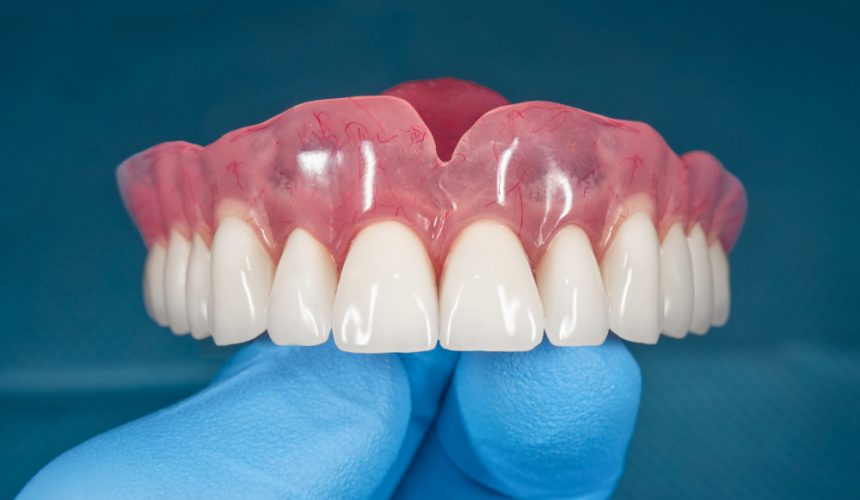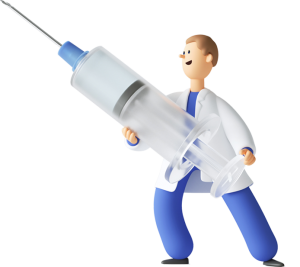
Dental Prostheses What?
The appearance of the face has important social and psychological effects on the personality of the individual. The most important basic elements that make up the attractiveness of the face are the eyes and mouth. Prostheses, which are popularly called veneers or dentures, are artificial teeth made to replace teeth that have been lost for various reasons or to eliminate aesthetic disorders, so that the person can perform chewing and speaking functions.
In cases where all teeth are missing, TOTAL DENTAL PROSTHESIS is applied. In cases where partial teeth are missing, PARTIAL (HOOKED) DENTAL PROSTHESIS and PRECISE ATTACHED DENTAL PROSTHESIS are applied.
FREQUENTLY ASKED QUESTIONS
What is the habituation process in total dentures?
The acclimatization time for full dentures is much longer than for implant supported dentures. Full dentures, which create a great psychological trauma especially for people who have never used full dentures, create an uncomfortable feeling in the mouth when they are first inserted. Getting used to the lower full denture is usually more difficult and takes more time than the upper full denture. Because the tongue in the mandible has a negative effect on the movement of the prosthesis. Patients wearing full dentures also have difficulty speaking. They may feel the tone of voice change as they pronounce words. In time, the patient will adapt to issues such as speech, language and movements.
How long can I use a total prosthesis?
Full dentures serve for many years when provided with good care and hygiene. In cases of weakening or osteoporosis, the prosthesis may become loose and play over the years.
Do I have to have full dentures when my teeth are lost?
Full dentures, which are the most difficult to use and hard to get used to among removable dentures, offer more comfortable use thanks to implant support today. The retention of the prosthesis can be achieved by placing two to four implants in the upper jaw.
Two implants in the lower jaw are usually sufficient for the retention of the prosthesis. Depending on the density of the jawbone and the length and diameter of the implants applied, the number of implants is increased to four if possible. Since the hazal bone is softer, full denture application is preferred and recommended especially for the upper jaw.
How long does it take to make a total denture?
Full dentures are prepared in an average of 5 sessions with impressions and various rehearsals. An average of 2 weeks is sufficient for 5 sessions.
How long does it take to make a partial denture?
It takes as long as the total prosthesis production time. So 2 weeks will be enough.
What is the duration of use of partial dentures?
Partial dentures serve for many years when provided with good care and hygiene. In cases of weakening or osteoporosis, the prosthesis may become loose and play over the years. Apart from this, depending on the use, flexing and breaking of the hooks may be encountered. In addition, loss of supported teeth may be possible. In this case, the lost tooth can be added to the existing prosthesis.
How long does it take to make a precision attachment prosthesis?
Precision attachment (snap-on prosthesis) prosthesis stages are the same as partial stages. Precision-connected prostheses are also prepared in an average of 5 sessions with measurements and various rehearsals. An average of 2 weeks is sufficient for 5 sessions.
What is the usage period of the precision attachment prosthesis?
Precision attachment dentures serve for many years when well cared for and hygienic. Depending on use, loosening or breakage of rubber and other parts of sensitive joints may occur. If the supported teeth are lost, the prosthesis must be repeated.
Should dentures be removed every night?
Removing the prosthesis at night relieves the oral mucosa, but it may cause the loss of the habit with the prosthesis. It can create a feeling of excess in the mouth when reinserted in the morning. For this reason, it is a preferred method to remove the dentures on certain days of the week instead of removing them every day.
- Empress Tooth (Full Porcelain) Veneer
- Zirconium Coating
- Dental Prostheses
- Inlay and Onlay Fillers
- Implant Treatment
- Periodontology (Gum Diseases)
- Teeth Whitening
- Orthodontic Treatment
- Teeth Grinding (BRUXISM)
- Digital Anesthesia
- Snoring Treatment
- Panoramic X-Ray
- Laser Dental Treatments
- Root Canal Treatment
- Tooth Stone Cleaning
- BONDING (Composite Lamina)
- Smile Design (Hollywood Smile)
- Porcelain Lamina (Leaf Porcelain)
